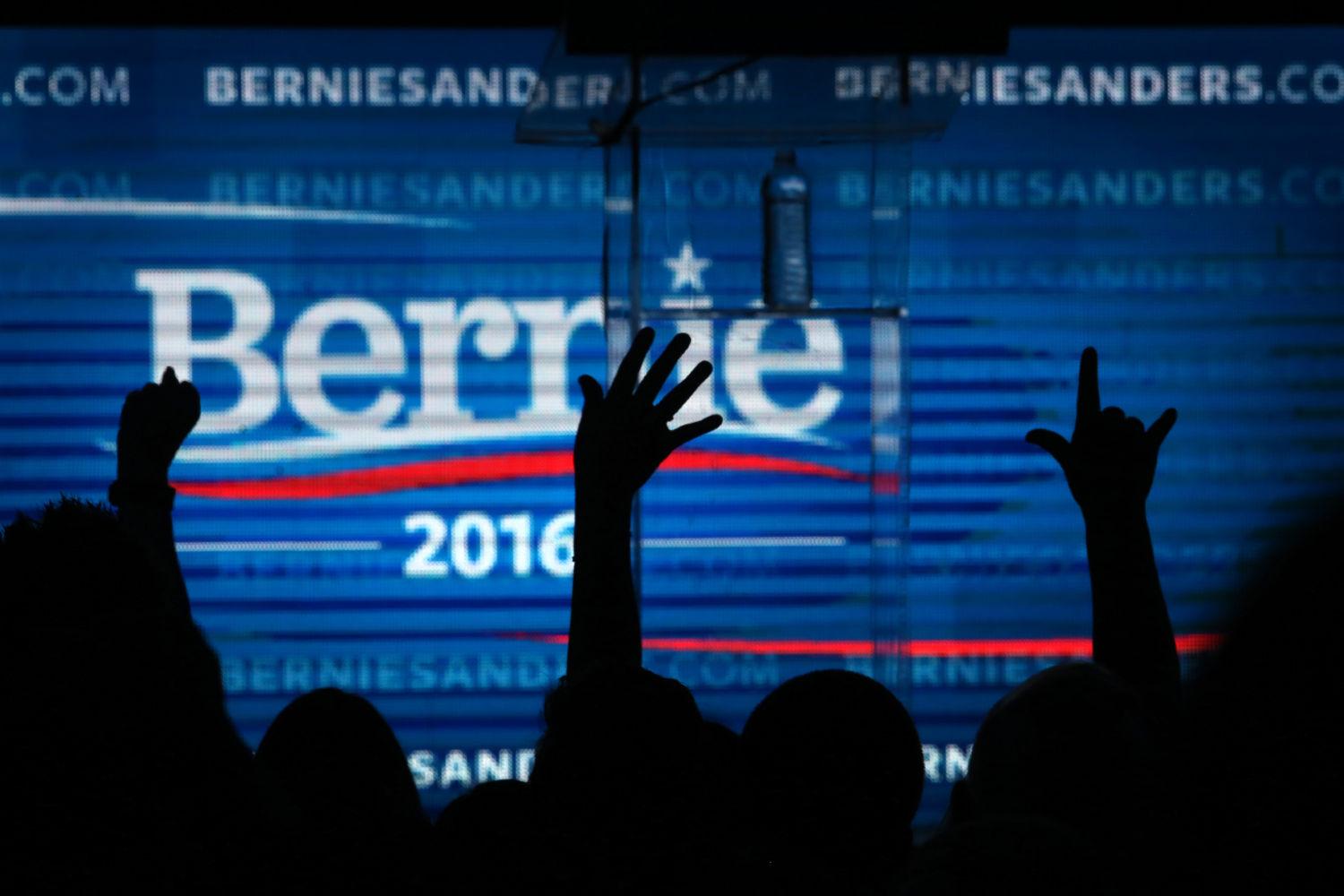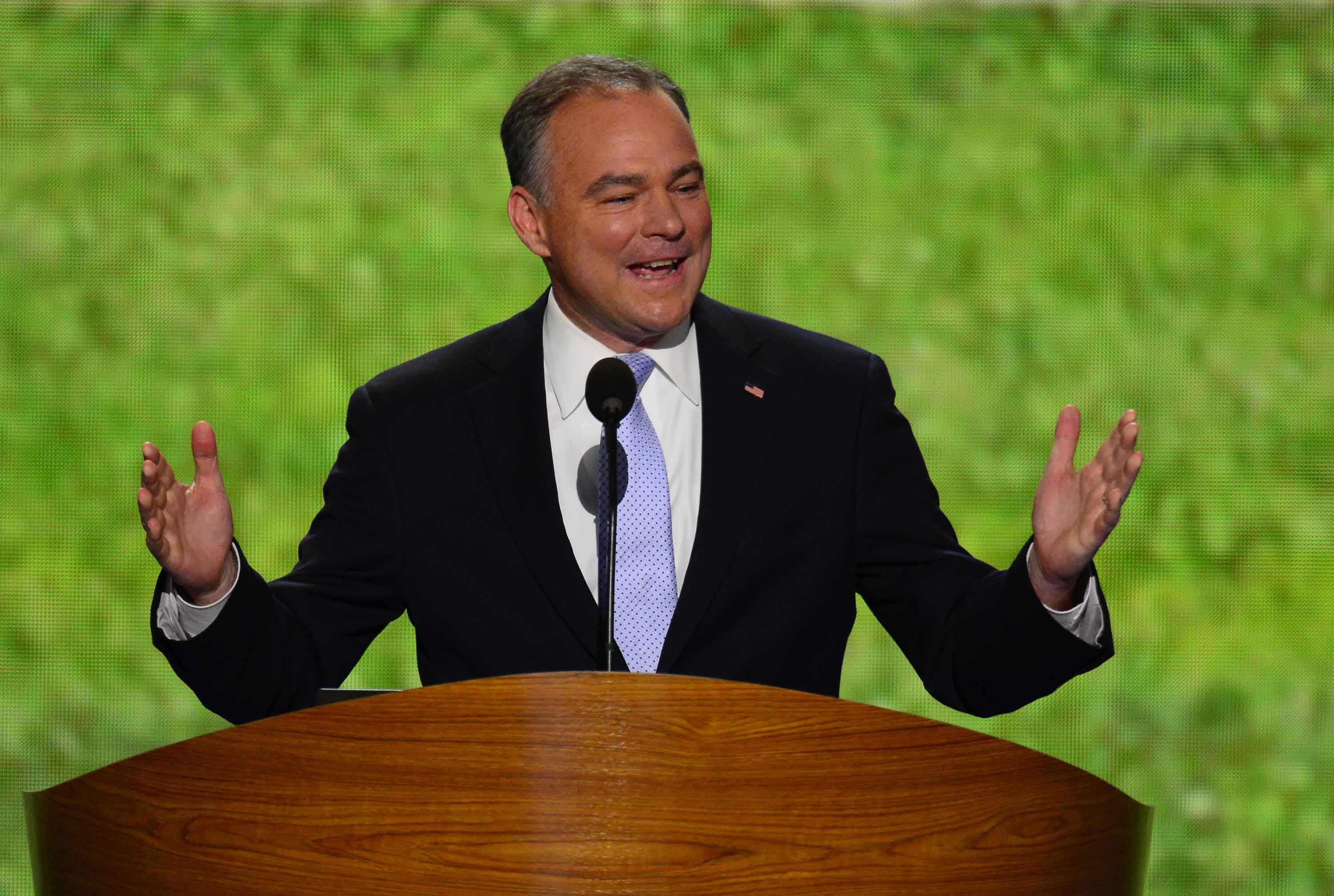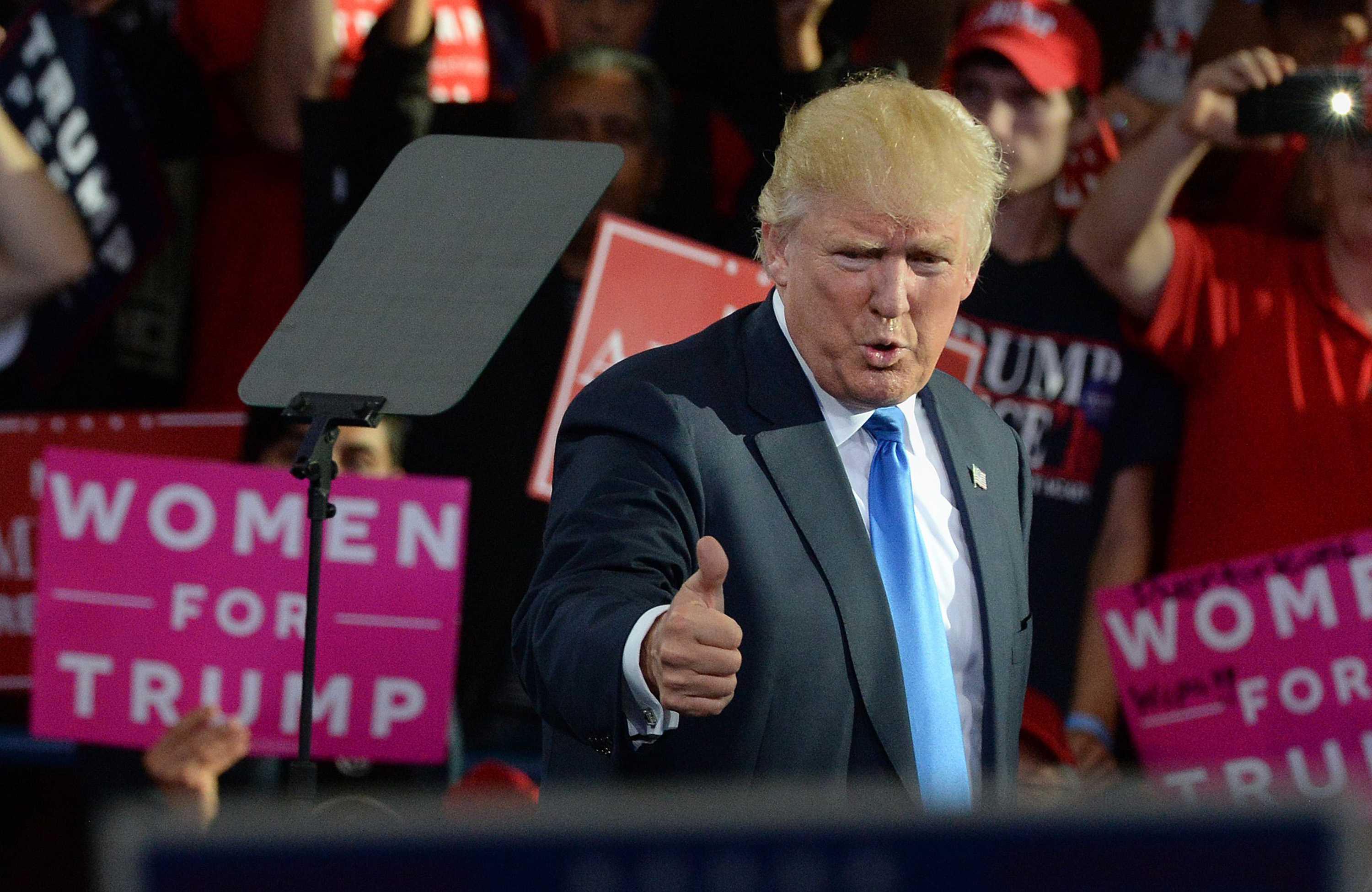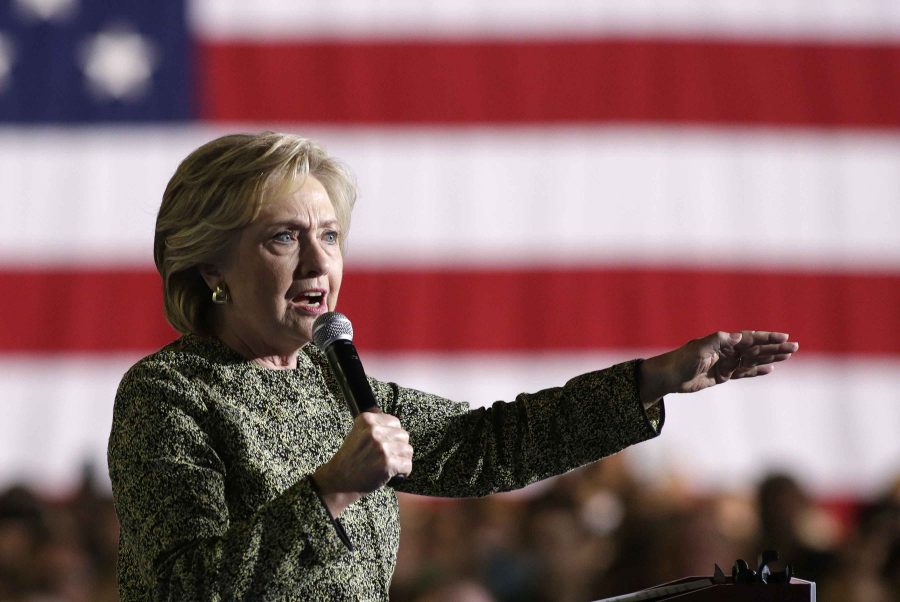Column: It’s simple: Clinton lost because she ran a bad campaign
Then-Democratic presidential candidate Hillary Clinton speaks during a campaign rally in Las Vegas on October 12, 2016, and aims to keep her focus in the closing days of the race. (Bizuayehu Tesfaye/Sipa USA/TNS)
November 15, 2016
There are legions of arguments for why America is not ready for Republican President-elect Donald Trump.
Former Secretary of State Hillary Clinton and her Democratic team spelled them out over and over. And the anti-Trump protesters who shut down streets in a postelection catharsis would not let us forget.
But much of America still is struggling with why Clinton lost her bid for the presidency — a question that begs to get beyond Trump’s misogynistic comments and white-man rage. Despite all of the money and all of the advice, she could have run a better campaign.
Advertisement
In anointing Clinton, the Democrats went all in with a candidate despised by a good portion of the country. High unfavorability ratings are hard to overcome, but that’s especially true for a candidate whose detractors have had decades to practice their attacks.
Warning signs of trouble came early and often in her campaign, but she failed to heed them. She was overly cautious, effectively staying on a course of political destruction rather than learning from mistakes along the way.
How was she surprised by the Bernie Sanders surge? She nearly lost the Iowa caucuses. She nearly lost the nomination. She lost Michigan to Sanders because he’d tapped a vein of anger and despair, but she thought she had it in the bag in the general election. Hardly.

What did Clinton give Sanders and his followers for their fervor? She let him campaign for her, but she gave little reason for his followers to feel a full embrace. Sure, she talked up some of his priority issues. After she beat him, though, she had a chance to tap into his energized base, and she didn’t.
Clinton badly miscalculated the political math. She didn’t pick Sanders as her vice presidential candidate, an idea that’s worked for rivals before. And she didn’t pick Sen. Elizabeth Warren, a Sanders-like fire bomber with a large following.
It didn’t have to be Sanders or Warren, of course, but America was pining for change. Clinton wouldn’t roll the dice on a running mate with far hotter hands on the pulse of young Americans. Clintonites thought Bernie Sanders was too, well, Bernie — a guy who spoke of outsized dreams and criticized the too-big-to-fail.
They thought Warren was too radical, or at least that she was perceived that way. Besides, why take a chance on a double-woman ticket? She made a safe choice with Tim Kaine, a guy known by too few outside of Washington, D.C., Virginia and the greater Beltway.
Advertisement*
Yes, he helped her win Virginia, but face it: She struggled there too. Kaine didn’t ignite the Sanders-stoked millennials.

In picking Kaine, Clinton flunked one of the basics of political math: It’s all about addition. Ignoring the crowd is a game of subtraction.
By throwing the masses little more than a bone, she redefined modern-day political elitism. She expected the spurned Sanders enthusiasts to love her anyway. She expected to galvanize the Barack Obama troops she needed and wanted.
She didn’t.
Failing to fire up her own side only exacerbated how much she fired up her opposition. A pro-gun crowd got whipped up over her anti-gun positions. Christian conservatives eyed a Trump appointment to the open seat on the U.S. Supreme Court seat as the political season’s Holy Grail.
Her incendiary “basket of deplorables” and other remarks flourished on the internet and fit into the narrative of people who spread an anti-Hillary gospel. Her words nourished the opposition, stiffening the resolve of the people who already felt pushed to the side, forgotten, broken by bad loans, layoffs and factory closures.
Big crowds turned out to support Trump, but Team Clinton didn’t get the picture.

Disaffected Democrats who felt isolated from their own party and fed up with gridlock marched to the polls. Tired of the way things work — or don’t work — they joined Republicans who found Trump distasteful but preferable to Clinton. They wanted help, not hope.
Obama gave us “Yes, we can!” Sanders called for a “political revolution.” Clinton gave us “Stronger together,” a no-zip slogan symbolic of her campaign.
Clinton’s team can complain about the email albatross and blame her loss on FBI Director James Comey’s late-inning moves. No doubt, his timing will be long debated, but it will be a footnote in history.
Clinton wouldn’t have had any of these problems if she hadn’t set up the home-brew computer system and used it. She can bemoan news coverage and scrutiny, and she has. But she refused to be accessible to the press and the public. She wanted to control the message.
Meanwhile, Trump called in to talk shows and took advantage of victory after victory to give prime-time speeches to viewers. All of these issues undermined her, and her minuses metastasized.
She failed to secure votes where she needed them and build on the support she had. She failed to recognize better choices for her running mate. She failed to take the email mess seriously. She failed to overturn stereotypes about being slippery and secretive.
She failed to give people a reason to vote for her — and not simply vote against Trump.
Hillary Clinton was the most qualified presidential candidate in modern history. Too bad she ran a bad campaign.
Ray Long is a Chicago Tribune investigative reporter. Readers may send him email at [email protected].
___
(c) 2016 Chicago Tribune
Visit the Chicago Tribune at www.chicagotribune.com
Distributed by Tribune Content Agency, LLC.
Advertisement








